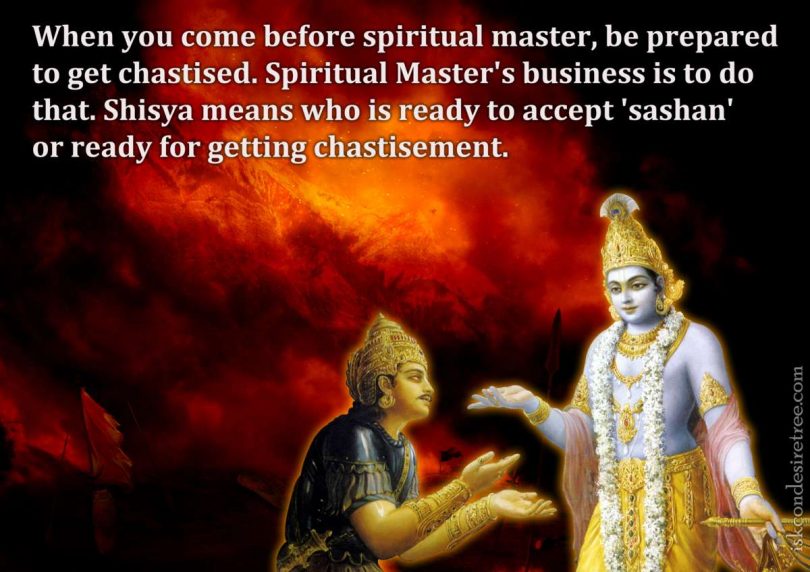Question: 1. Is there a difference between a recommendation and an instruction from a spiritual master to the disciple? If so, then how does one deal with the recommendation in a manner that is conducive to the spirit of surrender to the spiritual master?
Answer by Romapada Swami:
An instruction is to be taken as one’s life and soul, inseparable from one’s life’s breath. A recommendation is to be very seriously factored into making a decision on a particular matter being contemplated. There may be multiple additional factors that require review when contemplating a final decision on some issue, and knowing this to be the case, the spiritual master may make a recommendation, ie. point towards a path to follow in a certain direction.
It may also be that the spiritual master, considering the level of faith and attendant surrender of the disciple, knows that providing a firm instruction on a particular matter might not be followed by the disciple. Were this to happen, it would be quite detrimental to the disciple.
The main responsibility with re. to receiving ‘recommendations’, then, is to very honestly, seriously take the recommendation to heart, contemplate the message, its import, its personal applicability and its unique and particular value. One’s spiritual master ‘knows the pulse of the disciple”, and this very personal consideration has been taken when a recommendation is given. If one’s heart is open to the spiritual master’s shelter, this will very naturally take place. If there is some interference within one’s heart to taking guru’s shelter (eg. an independent spirit, pride, strong material desire, a slackened state of submission, overall complacency in one’s spiritual life, etc), an attentive devotee will feel resistance within the heart even to treasure the recommendation on its face value. That means that there is *ANOTHER* problem besides the particular ‘recommendation’ which is being contemplated. That problem needs to be addressed at once!!!
Question: 2. What if the SM gives an instruction or recommendation that is not the disciple’s propensity? Should the disciple accept this and try his/her best or is it OK to have a dialog on this without any offenses?
Answer by Romapada Swami: Dialogue without a challenging attitude is always welcome. The spirit of trust, submission, faith, love etc behind the dialogue constitutes the presence or absence of offense.







